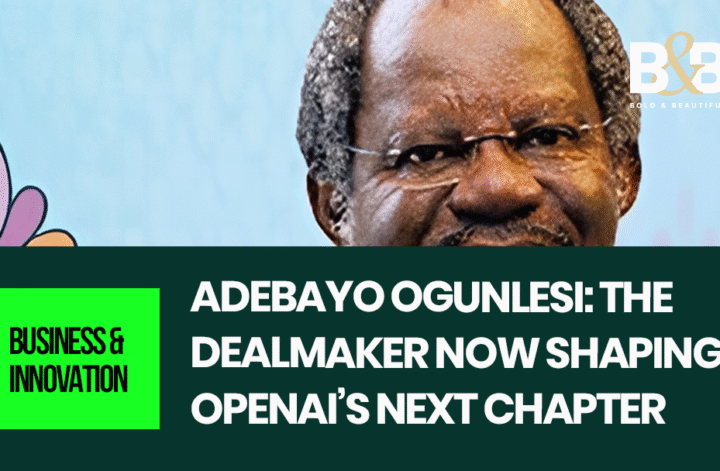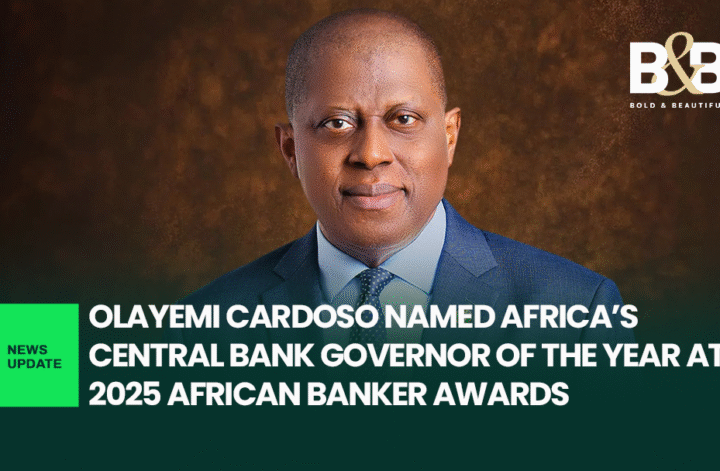Adebayo Ogunlesi’s name has long been linked to some of the largest infrastructure deals of the last two decades. Now the Nigerian-born financier takes on a new, high-visibility role as a member of OpenAI’s board of directors, joining the governance team at a moment when the company is accelerating acquisitions and scaling its commercial operations.
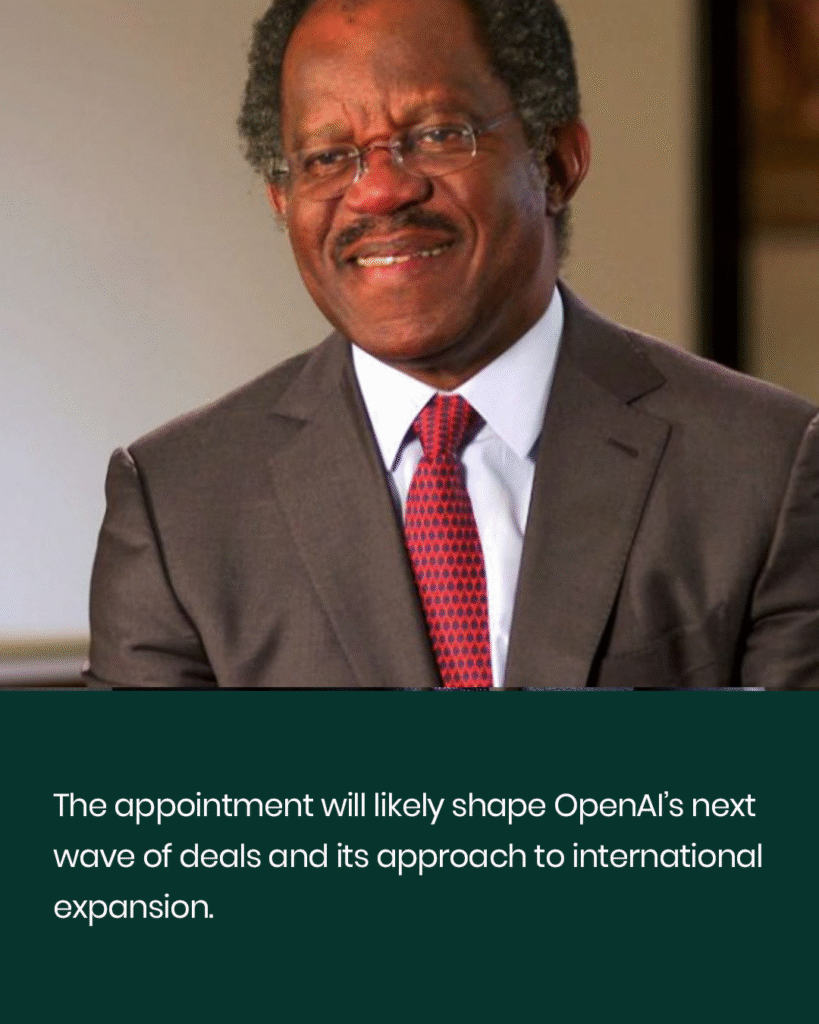
Ogunlesi arrives at OpenAI with a résumé built on complex transactions, institutional capital and private markets experience. He founded Global Infrastructure Partners, which built a reputation as a major global infrastructure investor and was later the subject of a large strategic sale. That track record has made him a sought-after figure in boardrooms that need deep capital markets expertise.
OpenAI’s recent $1.1 billion acquisition of Statsig — an analytics and experimentation platform — underlines the company’s shift from research lab to broad commercial operator. The deal adds technical capability and product testing muscle to OpenAI’s stack, and it also raises immediate questions about integration, data governance and regulatory scrutiny. Ogunlesi’s appointment signals OpenAI’s intention to strengthen its oversight and run large transactions with institutional rigour.
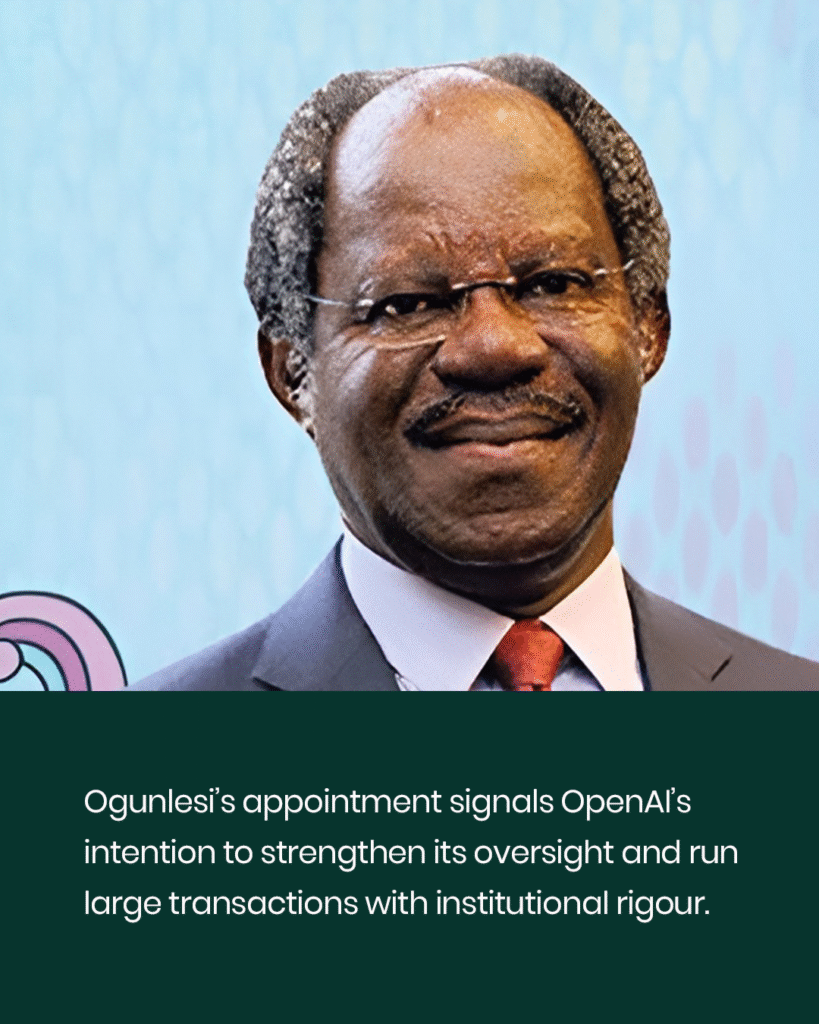
Those who know Ogunlesi describe him as methodical and deliberate. He trained at top institutions and moved from legal training into private equity and infrastructure. His academic background includes degrees from Oxford and Harvard, a combination that has served him well in complex cross-border negotiations. That intellectual training, coupled with a career of structuring long-term investments, gives him a rare blend of technical and strategic perspective.
For OpenAI the immediate task is to turn rapid technical gains into durable products and to do so while managing reputational, legal and policy risks. A board member with Ogunlesi’s experience offers value on several fronts. He can advise on large acquisitions, guide capital allocation, and help craft governance practices that are familiar to pension funds, sovereign investors and regulators. His presence will be reassuring to institutional stakeholders who expect disciplined oversight as the company grows.
There are practical pressures on the role. Integrating an acquisition such as Statsig requires clear product roadmaps, careful handling of user data and a culture that aligns engineering teams across different operating models. Ogunlesi’s career has emphasised patience and long-term value creation. Expect him to push for integration plans that prioritise clear metrics, independent auditability and financial discipline. Those priorities will shape internal discussions at OpenAI in the weeks and months ahead.
Ogunlesi’s arrival will be watched closely by a range of audiences. Investors will look for signs that OpenAI’s board can tighten commercial strategy without undermining innovative capacity. Civil society organisations will expect more rigorous safeguards around AI safety and responsible deployment. Regulators will scrutinise the governance choices of a company that now sits at the intersection of massive technical capability and global economic influence. Ogunlesi steps into this environment with a set of skills shaped by conventional finance that many see as complementary to the technical expertise already on OpenAI’s board.
For Ogunlesi this move also broadens his public profile. He has spent much of his career in private markets where discretion and long horizons prevail. Serving on the board of a high-profile AI company places him at the centre of a technology debate that affects labour markets, national security and privacy. That visibility will test how he balances commercial judgement with public accountability.
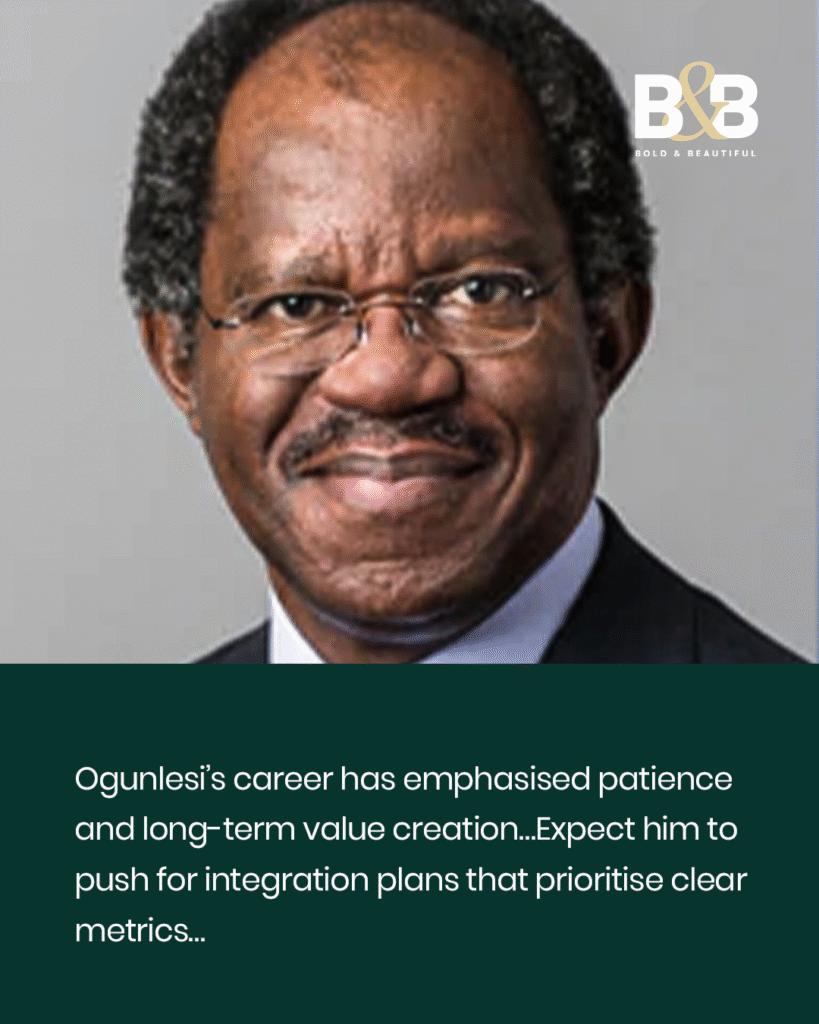
The appointment will likely shape OpenAI’s next wave of deals and its approach to international expansion. Ogunlesi knows how to structure transactions that bring large institutional investors into projects while insulating long-term value from short-term volatility. If OpenAI aims to scale infrastructure, licensing and enterprise offerings globally, his experience with multinational capital and regulation will be an asset.
There are few certainties in the current AI landscape. What Ogunlesi’s role makes clearer is OpenAI’s intent to professionalise the business side of its operation and to position itself for sustained growth under disciplined governance. For a company navigating rapid technical progress and intense public scrutiny, the practical, composed leadership style that Ogunlesi represents will be a decisive factor in how the next chapter unfolds.

